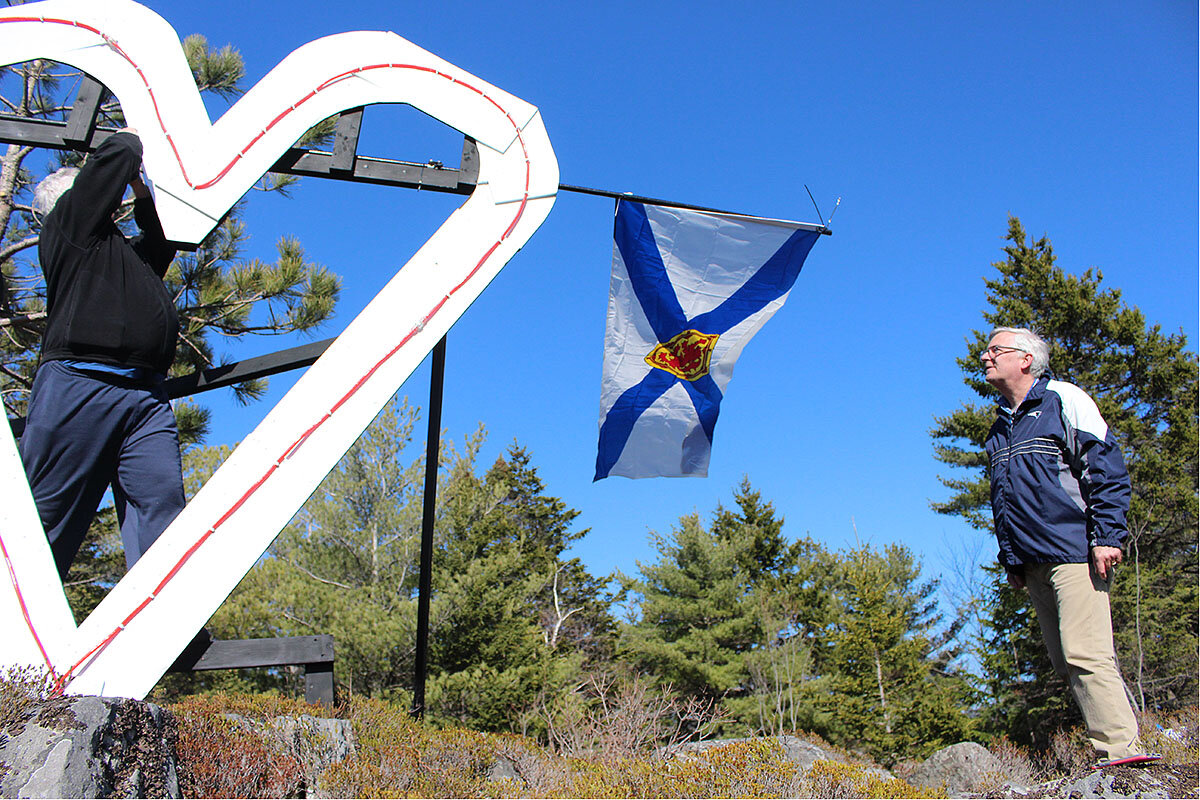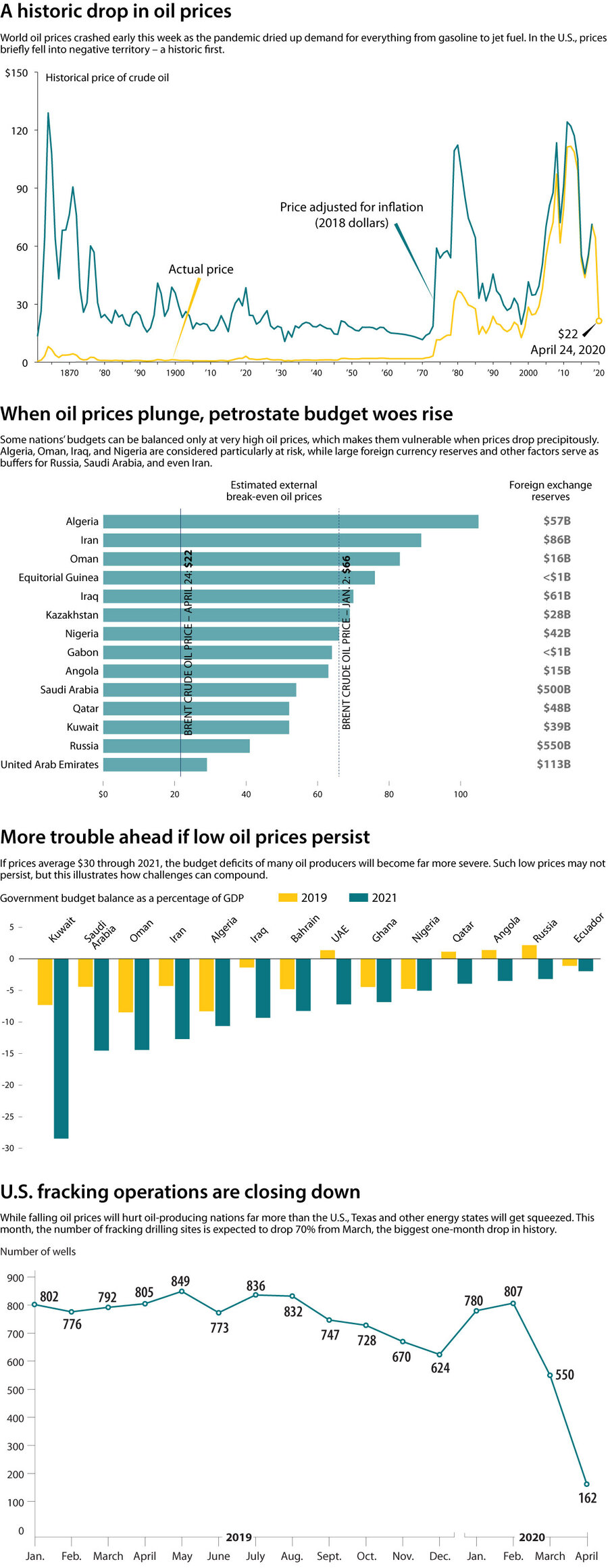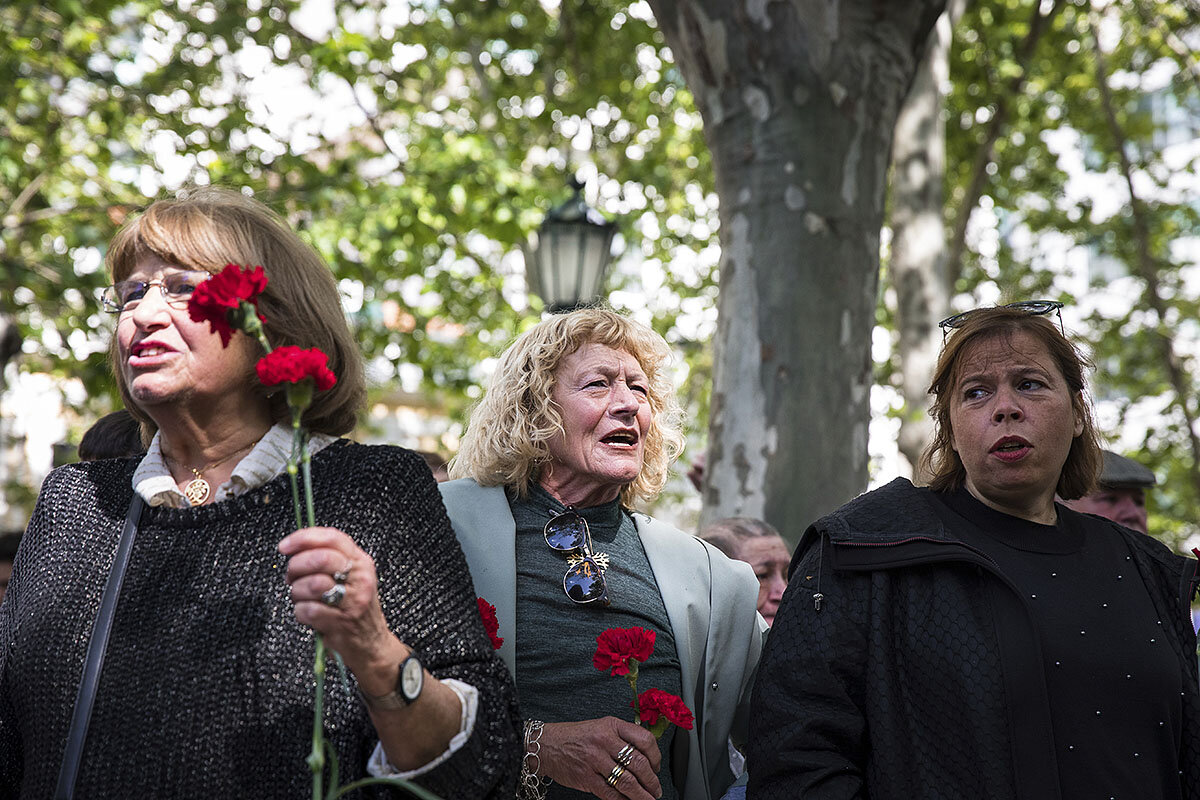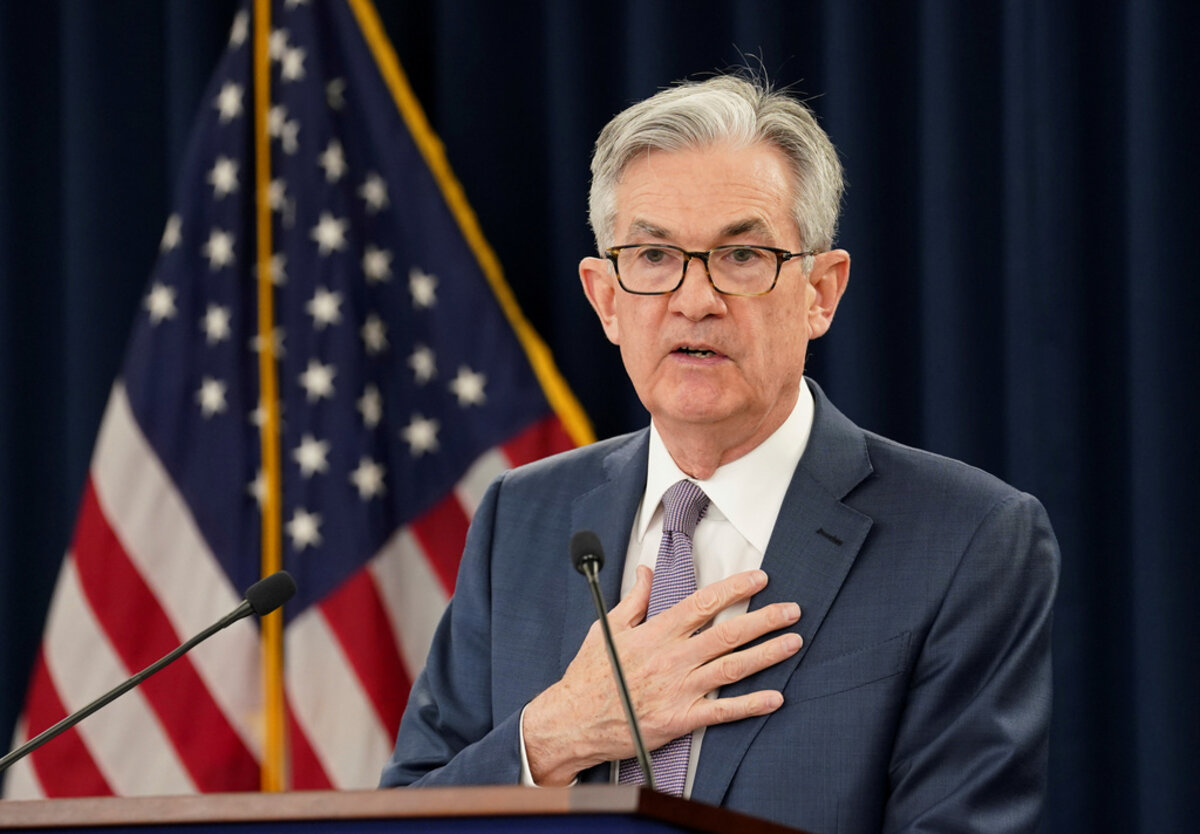Suffering Canada's deadliest mass shooting was a hammer blow for a community already struggling with the coronavirus lockdown. But Nova Scotia is finding ways to grieve – and to persevere.
Monitor Daily Podcast
- Follow us:
- Apple Podcasts
- Spotify
- RSS Feed
- Download
 Eva Botkin-Kowacki
Eva Botkin-Kowacki
Today’s issue explores Nova Scotia’s strength amid grief, the surprising effects of the oil price plunge, a new poignancy to Portugal’s day of celebration, a vision of the future in Boston’s empty streets, and the comfort of foster pets.
For millennia, humans have looked up at the cosmos with wonder. And for the past 30 years, ethereal images of deep space snapped by the Hubble Space Telescope have added immensely to that awe.
Today marks three decades since Hubble launched. Originally planned to operate for 15 years, Hubble has far exceeded expectations. It has provided invaluable scientific data on everything from the expansion of the universe to dark matter to the atmospheres of exoplanets. But perhaps its greatest contribution has been the spectacular images generated by that data.
Hubble’s breathtaking portraits – especially of the Eagle Nebula, known as the “Pillars of Creation” – have captured the imaginations of many outside science, earning it the nickname, “the people’s telescope.” As former Monitor science correspondent Pete Spotts once wrote, “Hubble and its images have transcended the confines of science conferences to become a global ambassador for astronomy.”
“Pillars of Creation,” like so many Hubble images, stands not only as a spectacular illustration of the beauty of deep space, but also of its mind-blowing science. Those pillars of gas and dust are incubating new stars. And, from our tiny space rock 7,000 light-years away, considering that vastness can be astonishing and humbling.











